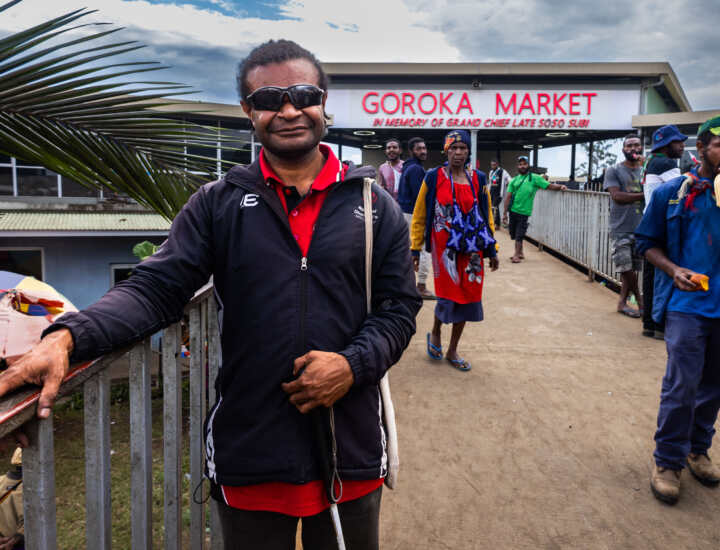Pre-conditions to inclusion are a framework of core components needed to overcome wide-ranging barriers that people with disabilities face to participating in programs, services, development efforts, and everyday life in their communities on an equal basis with others.
Sometimes referred to as ‘foundations for inclusion’, and ‘enablers to equity’, these components exist as an ecosystem, that are fundamental to participation and make it possible for people with disabilities to engage meaningfully with others.
In collaboration with our partners, CBM Australia recognises pre-conditions to inclusion as the measures that must be in place through which people with disabilities can participate and engage meaningfully in their communities:
Ensuring that legal and policy frameworks do not discriminate on the basis of disability, therefore guaranteeing that all people with disabilities are able to access and benefit from them on an equal basis with others. Efforts under this pre-condition focus on both:
- Law and policy reform: This focuses on aligning national laws with the Convention on the Rights of Persons with Disabilities (CRPD), creating disability-specific legislation, and ensuring access to justice so people with disabilities can enforce their rights to non-discrimination.
- Rights-awareness initiatives: These aim to educate people with disabilities, communities, and governments and challenge negative stereotypes and discriminatory norms, empowering individuals to act when discrimination occurs and fostering greater inclusion.
Ensuring the availability of affordable and appropriate assistive technology that are required for people with disabilities to be able to fully access and benefit from policies and programs on an equal basis with others.
Assistive technology is the umbrella term used for all systems and services related to assistive products and services, and includes:
- Wheelchairs, white canes, walkers, glasses, prosthetics, hearing aids, deaf-blind communicators, Braille displays, screen readers, crutches, or voice recognition software.
- Assistive services include fitting, maintenance and repair services, training, and rehabilitation services.
These include personal assistants, carers, peer-led support models, supported decision-making, sign language interpreters, and other communication supports that enable people with disabilities to fully participate in society, even when other accessibility and assistive technology needs are met.
People with disabilities have the right to access physical environments, transport systems, information and communications, and public services on an equal basis with others. Efforts to ensure accessibility often involve advocacy, setting and monitoring accessibility standards, conducting audits, and funding programs to ensure compliance and provide reasonable accommodations.
In addition to these pre-conditions, CBM outlines four foundational elements needed for implementation:
Participation and empowerment
People with disabilities and their representative organisations (OPDs) have the right to actively participate in decisions affecting them.
Key efforts include:
- advocating for processes that ensure their involvement, strengthening OPDs,
- collaborating with the disability movement to align with their priorities,
- building capacity of people with disabilities and OPDs, and
- advising other organisations on implementing these practices.
Recognising the extra costs of disability
People with disabilities and their families face additional direct and indirect costs, such as those related to mobility aids, sign language interpreting, healthcare, and lost income due to caregiving responsibilities.
Addressing the intersection of disability and poverty is extremely relevant to CBM Australia’s work and requires efforts like social protection and targeted livelihood programs to reduce this financial burden.
Data and inclusive budgeting
Reliable data is essential for planning, implementing, and monitoring disability-inclusive policies and programs. Data on barriers and the participation of people with disabilities helps inform decision-making. Inclusive budgeting is equally important to ensure adequate resources are allocated to support disability-inclusive policies.
Community inclusion
Empowering people with disabilities and fostering their participation in everyday life requires strengthening communities to be inclusive. This involves building inclusive support networks, mobilising communities, peer support, and engaging with existing groups like faith, sports, and women’s organisations. Community Based Inclusive Development (CBID) is a key approach to achieving community-level inclusion.
CBM Australia continues to work with our partners in the disability and development sector to eliminate the barriers that prevent people with disabilities from participating meaningfully in society and on an equal basis with others.

